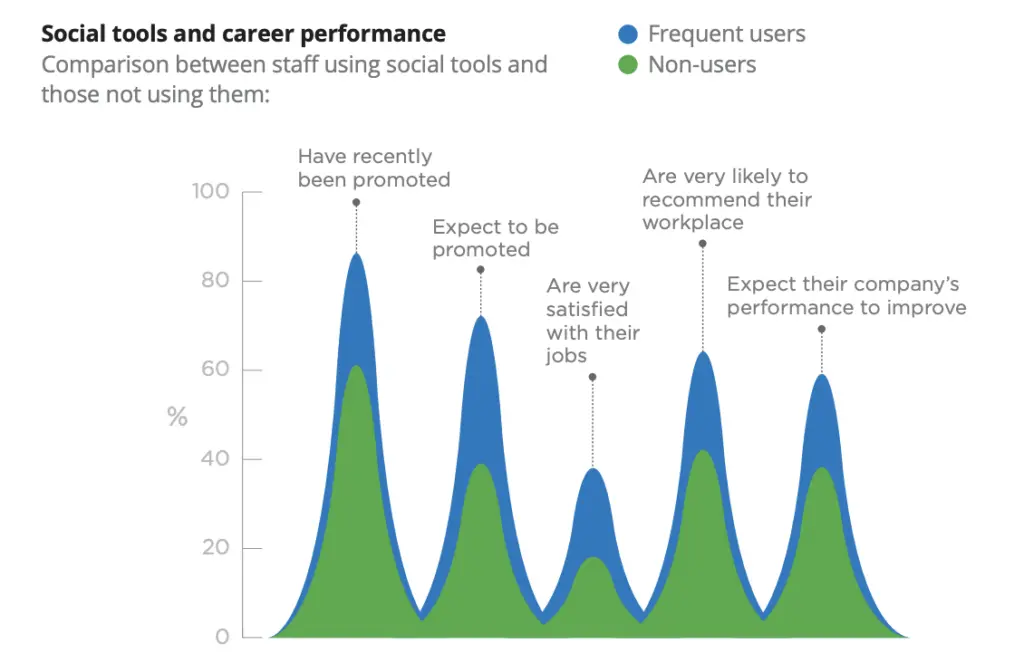Early in 2023, I decided to completely ditch most social media. I did, however, keep one: LinkedIn. Since making LinkedIn my go-to social, it’s become increasingly clear that some people seem very well connected within their respective professional networks. It’s impressive, to say the least. But for a junior-level employee without access to a mentor network, making a name for oneself might seem impossible. The process of expanding your professional network often begins at home (e.g., where you work right now) and is much easier to accomplish when companies offer mentoring programs.
The power of mentorship is not just in the personal guidance and wisdom that mentors provide. Great mentors can open doors by helping mentees expand their professional networks. Particularly within the traditional mentoring dynamic (“senior-level mentor, junior-level mentee”), that mentor has likely built up a professional network over time through organic interactions. They stand in an excellent spot to help their mentees expand their own professional network.
In this post, we’ll talk a bit more about how mentors can create the kind of networking avenues their mentees may not have discovered independently.
What Is Mentorship, Anyway?
Mentorship is any form of social learning where someone with more experience (a mentor) helps guide the learning and growth of someone with less experience (a mentee).
✋🏾 Stop right there, though. Quite often, “experience” is equated with “age” or “tenure”. Dispense with that thinking. For example, in a reverse mentoring program, where the younger and junior-level employee is the mentor to a senior-level leader, that dynamic is flipped. And even in that kind of mentoring relationship, the mentee (again, a senior-level leader) can grow their professional network in new ways.
The reality is that we can all stand to expand our professional networks. And according to professors Marissa King and Balázs Kovács (Yale School of Management), our professional networks have shrunk 16% since the pandemic. That contraction was even worse for men, who already face greater levels of social isolation as it is.
That’s where workplace mentorship comes in. It’s about experienced professionals lending their expertise, insights, and perspectives to mentees, aiding in their growth and progression.
A note on mentoring formats and types
While one-to-one mentoring is the most common, other mentoring program formats like group mentoring, mentoring circles (or affinity circles), and reverse mentoring can be set up to structure a mentoring relationship.
👉 KEEP READING: What Is Mentoring? A Detailed Guide to Successful Mentoring
Why seek mentorship? Isn’t hard work enough? Imagine navigating a city without a map or GPS. That’s what a professional journey without a mentor can feel like. Having someone who’s been down that road can make all the difference.
This is especially true when someone is first starting on their career journey. Access to a mentor network can be paramount in terms of guidance, resources, and connections that can give you a significant advantage in the professional realm.
Professional Networking at a Glance
Professional networking is a powerful tool in the world of business and career development.
Networking isn’t just about collecting business cards or sending LinkedIn requests. It’s about building genuine relationships that can lead to more career opportunities, partnerships, or simply gaining valuable insights.
As an HR leader, you can help your employees expand their professional circle by getting them engaged in events, online platforms, and industry gatherings. That may all start with the mentoring relationships and filter through the mentor’s knowledge and experience.
To effectively connect, communicate, and establish meaningful relationships with others in a professional context, workers need to develop and master networking skills. These skills may include (but are not limited to):
- Active listening: Truly hearing and understanding what others say, showing genuine interest in their experiences and perspectives.
- Effective communication: Articulating your thoughts, ideas, and intentions clearly and succinctly.
- Building rapport: Establishing a sense of trust and mutual understanding with others.
- Reading social cues: Recognizing non-verbal signals and adjusting your approach accordingly.
- Research skills: Preparing for events or meetings by knowing who will be present and their professional background.
- Follow-up: Reaching out after initial meetings to strengthen relationships, whether via email, text message, or calls.
- Personal branding: Knowing how to present yourself, both online and offline, in a manner that is consistent and reflects your professional goals.
- Adaptability: Being flexible and able to connect with a diverse group of individuals from various backgrounds and industries.
- Organizational skills: Keeping track of contacts, conversations, and potential opportunities for collaboration.
- Empathy: Understanding and respecting the viewpoints and feelings of others, which fosters deeper connections.

The phrase: “It’s not about what you know, it’s who you know” really seems to get under some people’s skin. I get it. Yet the data is pretty clear. Engaging in professional networking not only broadens your horizons but also sets the foundation for mutual growth and collaboration.
In an admittedly dated (2012) but still relevant survey, Google (now Alphabet) found that individuals who use social tools for networking were more likely to report that they’d been promoted or were likely to be promoted. That’s a fairly strong indication that the “who you know” has an outsized impact on career advancement, but it also makes sense. If nobody knows about you, and they don’t know that you’re interested in different roles, you aren’t going to be top-of-mind once opportunities arise.
Benefits of Mentorship in Professional Networking
Mentorship in professional networking is a holistic process that not only fosters career advancement but also personal growth.
The synergies between mentors and mentees can lead to rewarding professional relationships and invaluable opportunities that might not have been accessible otherwise. Indeed, 80% of professionals consider networking important to career success, according to LinkedIn.
1. Unveiling Hidden Opportunities
Mentors have likely encountered numerous scenarios and can offer mentees guidance on capitalizing on overlooked opportunities. Like finding a hidden café in a bustling city (and ideally, one with lavender lattes like my local New Orleans favorite, Petite Rouge), mentors reveal industry secrets that aren’t visible to everyone.
With a wealth of experience from their years in the industry, mentors have faced challenges, made mistakes, celebrated triumphs, and, most importantly, learned from all of them.
This accumulation of knowledge isn’t something one can easily find in textbooks or online courses. Mentors can steer their mentees away from potential pitfalls or career missteps and towards paths less traveled by others, where tremendous opportunities might lie in wait.
This can give mentees a distinct advantage, setting them apart from their peers who might be navigating the professional landscape without such valuable insights.
2. Access to Industry Experts
Think of mentorship as a backstage pass to a concert. It can provide mentees with direct access to experts and thought leaders in the industry.
Mentors often serve as a bridge by connecting mentees to a broader network of professionals. The relationships mentors have cultivated over the years or even decades can be invaluable for their mentees. With their introduction, doors that seemed previously shut or inaccessible can suddenly swing open.
There is, of course, another word for this: Sponsorship.
We have more to say on when mentorship transforms into sponsorship. Check out our Mentoring Masterminds video to learn more!
Whether your employees need more advice on a particular subject, are seeking collaboration on a project, or are exploring career opportunities, having access to industry experts through their mentor’s network expedites their journey. Plus, being vouched for by a respected individual can elevate their credibility within the professional community.
Take a peek at our software! It’s why most Fortune 500 companies opt for MentorcliQ as their mentoring software provider for making impactful mentor-mentee matches.
3. Personal Branding and Recognition
With a mentor’s support, a mentee’s skills, talents, and growth gain access to new eyes. Instead of fewer people seeing that growth, the mentor can help display and promote their mentee’s talents and growth within their network.
And it’s as simple as making a LinkedIn post about it!
A mentor can truly be instrumental in enhancing their mentee’s personal brand. When they advocate for their mentee, they share in their mentee’s achievements. Even just mentioning their mentee to the right people at the right time can be crucial.
When mentors offer up their endorsement, it enhances the personal brand of their mentee. That mentee is then elevated among the sea of other professionals within their network. Over time, and with the mentor’s guidance, the mentee’s professional reputation can soar, leading to more opportunities and connections that further solidify their standing within their professional network.
Mentors: Introduce Your Mentees to a Wider Network
Mentors don’t and should not always default to promoting their mentees. That’s something that the mentee needs to earn over time as they develop and grow with their mentor. However, mentors don’t and shouldn’t be too slow to offer that kind of personal promotion to their mentees. Once mentors feel the mentee is ready to show off to the world, it’s time to introduce that mentee to the broader professional network (and the opportunities that come with that).
Sharing of Contacts
Have you ever heard the saying, “Your network is your net worth?” Mentors often introduce their mentees to valuable contacts, making this adage ring true.
This shared network is more than just a list of names; it’s a curated collection of professionals who have, over time, earned the trust and respect of the individual serving as a mentor. By sharing these contacts, a mentor doesn’t just provide their mentee with phone numbers or email addresses. They’re offering a shortcut to credible introductions, initiating the mentee into a circle of industry leaders, potential collaborators, and peers who can further their careers.
Effectively, it’s giving the mentee a valuable inheritance. One that they’ll hopefully pass along, as well.
Invitations to Exclusive Events
Events, seminars, and conferences are excellent opportunities to rub shoulders with industry veterans, thought leaders, and potential partners. Such occasions aren’t just about the knowledge shared during presentations but also the informal chats during coffee breaks and the connections made during networking sessions.
Collaborative Projects
Working with a mentor on projects can open doors to meeting other professionals. It often involves interdisciplinary teams, enabling the mentee to learn from experts in different areas. The mentee can diversify their skill set with this type of collaboration.
As mentees work closely with their mentor and their mentor’s network on these initiatives, everyone gets a firsthand experience of that mentee’s capabilities. That can allow the mentor to be in a position to verify why they’re promoting their mentee.
Mentees: Leverage Mentorship for Professional Networking
This section applies specifically to mentees and not admins or mentors. Consider it sound like junior-level career professionals who’ve landed on this page and are looking for advice.
Actively Seek Feedback
By proactively asking your mentor for their insights and observations, you unlock a treasure trove of firsthand experiences and industry-specific knowledge. This constructive criticism fine-tunes your professional skills and expands your network.
When you embrace feedback, you demonstrate a genuine eagerness to grow, which can lead to introductions to other influential figures in your field.
Engage in Group Mentorship Programs
When you participate in group sessions, you’re opening the door to meeting multiple professionals at once. These could be individuals from varying backgrounds, industries, and experience levels. Being a part of such diverse gatherings gives you the advantage of widening your perspective and understanding different viewpoints.
These connections could become future collaborators, partners, or workplace buddies who can offer guidance and support in your career journey.
Regularly Attend Events with Your Mentor
Be present.

Just like attending family gatherings, the more you show up, the stronger your connections become.
Accompanying your mentor at industry events can provide numerous opportunities. You get to meet your peers, understand the dynamics of the professional world, and establish your presence. Your mentor can also introduce you to their circle, vouching for your skills and dedication.
Over time, these introductions can translate into meaningful professional relationships. Consistency in attendance also solidifies your commitment and can lead to more organic and impactful networking moments.
Start Building Your Mentor Network Today
Through shared experiences, insights, and introductions, mentors can catapult mentees into a world filled with new opportunities and connections. Many employees are standing at the crossroads of their professional journey. They often quit when they don’t see a path forward at their current organization. However, companies that provide mentoring can help solidify the career path and retain workers for a longer period of time.
The solution is simple:
- Find out what kind of career pathing your company has
- Create visible career pathways that include mentorship and sponsorship
- Ensure that mentors and mentees are matched effectively to get the best results
There’s no time like the present, as they say. Check out the software that makes sponsorships happen with ease.




